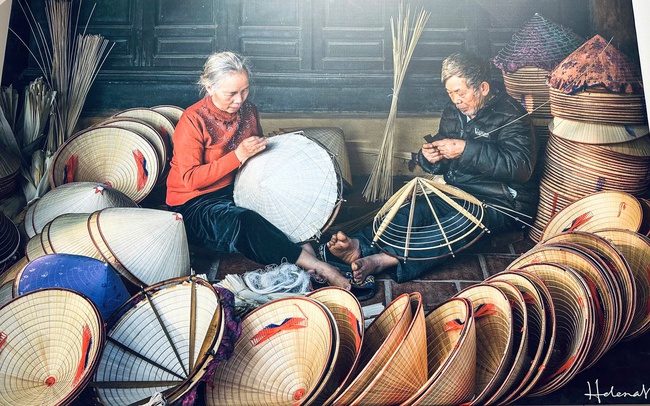The festival aims to preserve and promote traditional cultural values, honor artisans, attract young workers, foster pride in traditional crafts, and enhance international exchange. It also seeks to showcase handicraft products and develop craft village tourism in Hanoi. The festival is organized in celebration of major national holidays in 2025.

The plan includes eleven main events scheduled to take place over five days, from November 14 to November 18, 2025, at the Thang Long Imperial Citadel. Additionally, six side events are planned from September to November 2025 throughout the city, with the participation of enterprises, craft villages, distinguished artisans, and skilled workers from both Vietnam and abroad.
The festival's core agenda encompasses a rich array of events, including an incense offering ceremony, a grand opening celebration, a product exhibition, and formal receptions for international delegations. These are complemented by a diverse lineup of side activities such as thematic seminars, product competitions, trade fairs, investment promotion sessions, and an international showcase highlighting Kokan – Uzbekistan. Cultural performances and programs in local craft villages will further enrich the Festival atmosphere.
Leadership responsibilities are shared between the Ministry of Agriculture and Environment and the Hanoi People's Committee. The ministry will oversee national-level competitions, spearhead investment forums, and coordinate with central and international guests. Meanwhile, the Hanoi People's Committee will lead ceremonial and cultural elements, host delegations, and organize Hanoi-level seminars, trade fairs, and craft village events.
Task delegation is a central feature of the Festival's organizational structure. The Hanoi People's Committee is in charge of overall planning, public communication, and recognition activities, assigning specific responsibilities to relevant departments. The committee's office will handle administrative formalities and work with the Department of Agriculture and Environment on international liaison and logistics.
As the standing body, the Department of Agriculture and Environment plays a pivotal role. It will provide strategic advice and arrange venues. In addition to handling event logistics and decorations across festival locations and key city roads, the department will also lead the incense offering ceremony at Kinh Thien Palace, within the Thang Long Imperial Citadel.
To ensure broad participation, the department will invite artisans, craft villages, enterprises, and cooperatives from Hanoi and other provinces to join in exhibitions and live demonstrations. It will also collaborate with the city's Emulation and Commendation Board to propose honorees for recognition and assist the committee's Office in preparing necessary documentation.
The Department of Culture and Sports will curate artistic programs and drive the promotion of Hanoi's cultural image, while the Department of Tourism will design tours of craft villages and enhance visibility for key destinations. The Department of Construction, in coordination with the police, will manage traffic flows and ensure infrastructure readiness. Public health and safety will be overseen by the Department of Health, which will also be on standby for emergencies. Fire safety, order, and overall security will fall under the purview of the Hanoi Police.
Institutional and civil society support will also be essential. The Thang Long – Hanoi Heritage Conservation Center will facilitate heritage-related activities and infrastructure. The Hanoi Handicraft and Craft Village Association will curate exhibitors and artisans.
The Hanoi Ornamental Creature Association will arrange bonsai showcases. Local ward and commune authorities will host week-long cultural programs tied to local craft traditions, and provide support through funding, products, and artisan participation.
On the national level, the Ministry of Agriculture and Environment will work in lockstep with Hanoi authorities. Its Department of Cooperative Economy and Rural Development will coordinate product competitions and investment activities, while its Office handles formal invitations.
International participation will be secured through the Department of International Cooperation, and commendations will be managed by the Department of Personnel Organization. Funding will be administered by the Department of Quality, Processing, and Market Development.
Communication, competitions, and ceremonies will be led by the Agricultural Trade Promotion Center, with media efforts spearheaded by the Agricultural and Environmental Newspaper. Collaboration from international partners will be welcomed. The World Crafts Council – Asia Pacific Region will invite international guests and contribute to programming.
Business engagement will be supported by the Vietnam Handicraft Exporters Association, and the Vietnam Craft Village Association will mobilize participation from its members. Further, the Ministry of Culture, Sports and Tourism will assist with tour development, while the Ministry of Industry and Trade will support trade promotion and networking initiatives.